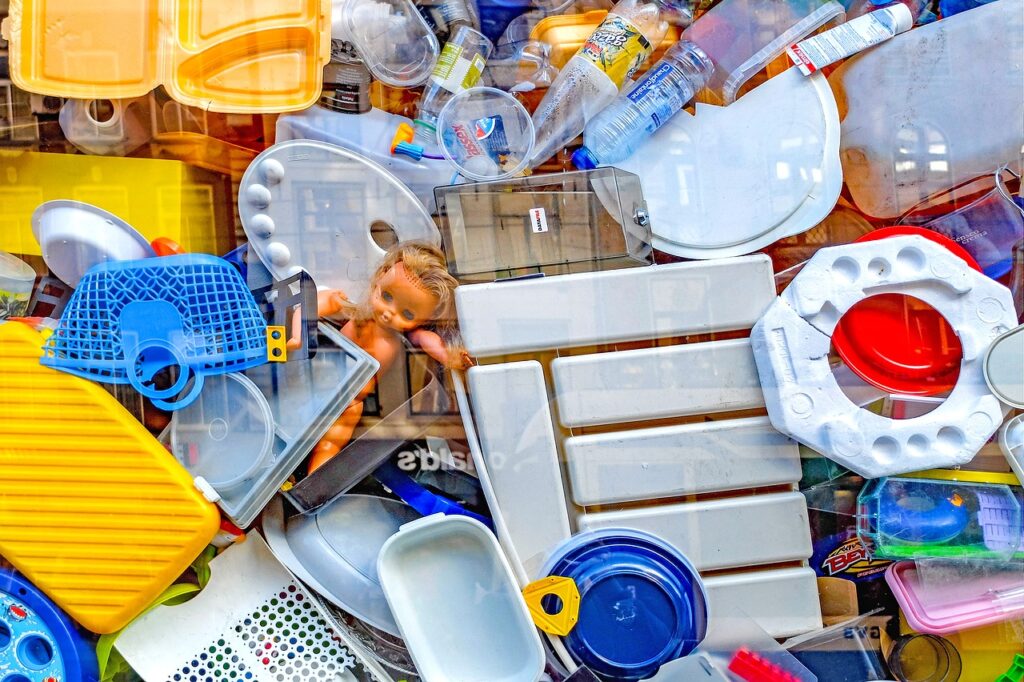
Image Credit: Pixabay Images
Modern life has made our life very comfortable but it also brought along its own luggage. For example, plastic – made life very convenient but there is a huge problem with its proper disposal; batteries – we are almost dependent on it for our daily activities from phones, laptops, vacuum, shaver etc. and only beginning to understand the long term issue with its disposal too.
We, as individuals, could do a lot to compact the environmental issue by banking on what the Singapore government and other organisations have laid out. Here are some avenues you can tap into.
1. Recycle (Papers, Plastic, Glass, Metal)
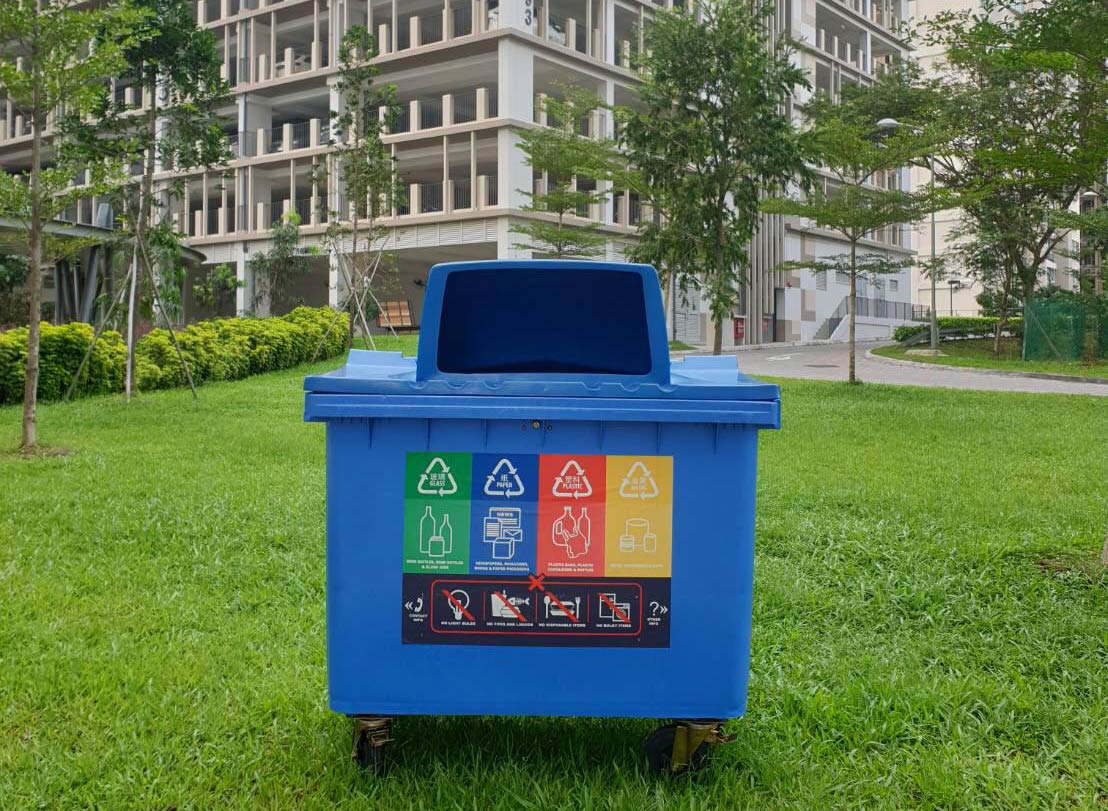
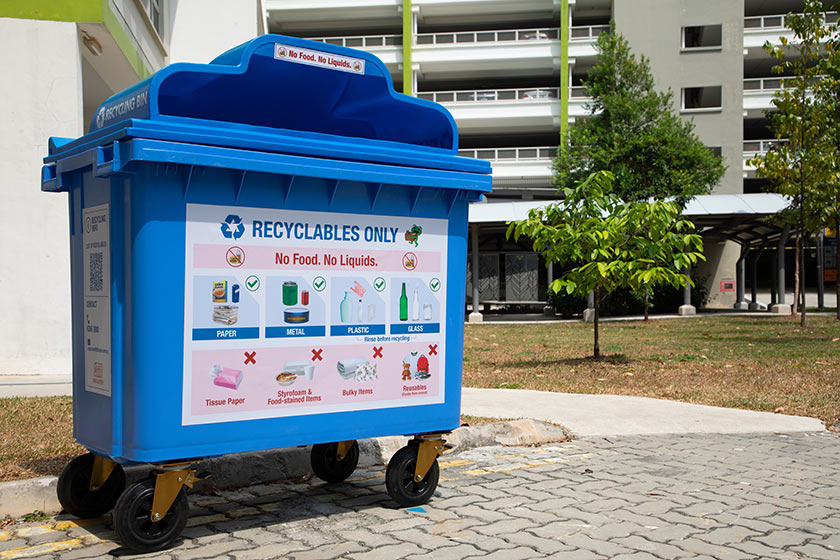
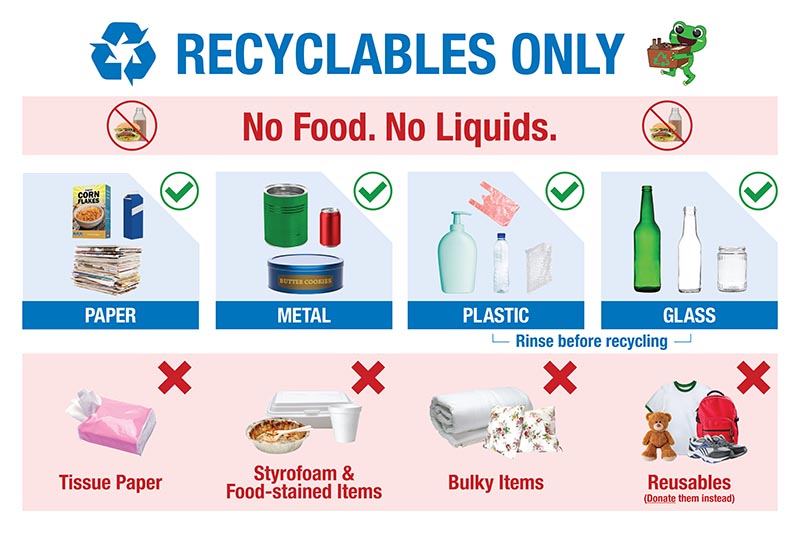
Ever seen this blue monsters with their hungry mouth waiting to be fed near your block? (Image source: www.nea.gov.sg). Make full use of the initiative by NEA to make a difference to the environment. Moreover, the recycle bins are conveniently placed at each building block.
I was earlier of the opinion that even tissue/toilet papers were recyclable, including disposable paper cups and plate – How wrong I was! The items that are recyclable and non-recyclable are listed below (Source: NEA). For a complete breakdown on all the recyclable items listed by NEA, check the link here.
You can also get rewarded with your recycling effort. Check the details here.
For starters, it is good to have two bins at home, one for recyclable items and other for regular waste. I usually keep the larger one for recyclable items because I’m lazy to go down regularly to dispose them to the blue recyclable bins.
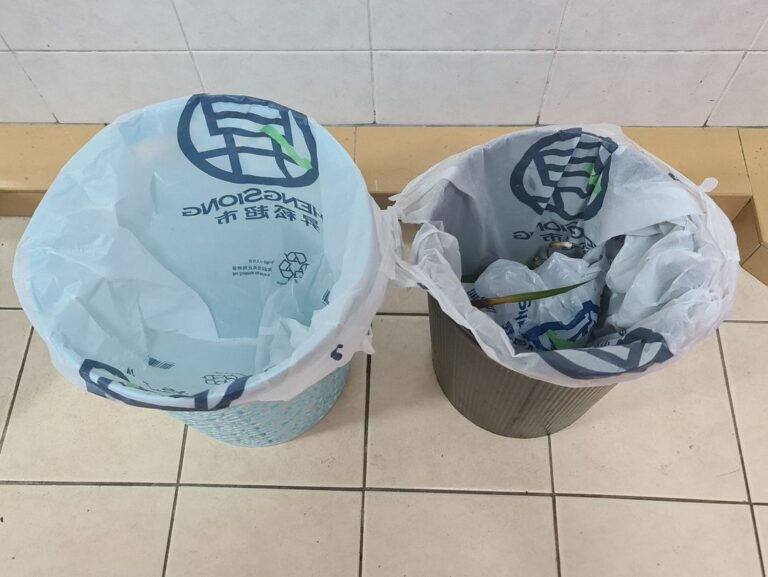
2. Recycle Electronic waste (E-waste)
E-waste pose a great threat because of the toxic chemicals released into the environment. E-waste, if not properly disposed, leads to the toxic chemicals released into the soil and water affecting both land and sea animals. Research shows that residents expose to (illegal) e-waste burning cause human health risk.
NEA has placed collection bins across Singapore for e-waste. Browse over the map and click on the icons below to find a collection bin near you or click here for the list of entire collection points (Source: NEA website).
Below is an image of the collection bin near my place for household batteries and bulbs. Note that it does not accept power-bank, laptop and mobile phone batteries.
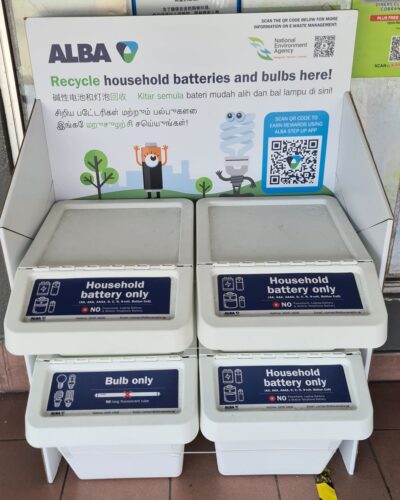
For rechargeable batteries, please tape the ends or wires of rechargeable batteries before recycling them to reduce the risk of short-circuits and creation of fire hazard (Source: NEA website). You can also donate or trade your goods in working conditions at the following Collection Centres.
3. Donating Clothes
Do you have clothes that no longer fits you but still in good condition? You can always donate your used clothes instead of dumping them at the waste bin. For my Minimalist Lifestyle, I try to follow the rule of an old dress making way for the new one (Well, most of the time!). That leaves me with something to give away with each purchase. There are several organisation that accept used (or new) clothes. Below are some that I have interacted with the giving.
– Salvation Army
Salvation Army is Christian organisation well-known for their charitable work globally. You can donate your clothes, furniture, household goods, electronic devices, toys and books at various locations in Singapore. They have booths and family stores set up for the collection. Click here for the details of collection location. Bulky items like furniture and big appliances can be also arrange for collection service.
– Greensquare
Greensquare aims to increase recycled textiles by providing free textile recycling services to households and organisations in Singapore. They have drop off locations across Singapore. If your donation items is 15 kg or more, you can schedule an appointment with them for collection from your place (though I have not opted for that so far).
Below are the items collected by Greensquare:
- Clean and wearable paired shoes
- Clean household linen (E.g. bed sheets and towels)
- Accessories (E.g. belts and bags)
Items not accepted:
- Dirty, stained, torn, moldy and wet items
- No toys, soft toys, fabric, carpets, books, kitchenware, used undergarment, used socks, pillows, comforter, stationery
– Spectacles
Yes, you can also recycle your old spectacles to Visio Optical, instead of letting it lie unused at home or disposing it in the waste-bin. It can be your reading glasses, distance glasses, and/or sunglasses available (in usable condition). The beneficiaries includes elderly people in nursing homes and and day-care centres and needy families. Buying a new spectacle regularly is now justified knowing that I am donating my used spectacles.
4. Donating Food
In Singapore, the overall amount of food waste generated in 2020 was 665,000 tonnes – there is certainly no lack of food. The waste are often expired food packages, unconsumed leftovers (partially from cooking in excess), and fruits and vegetables getting spoiled.
You can also donate your excess, unopened, unexpired dry/packaged food items to Food Bank Singapore. Make sure that there is at least 4 weeks to expiry of donated food items. The food items can be dropped at various locations set up in Supermarkets, Shopping Malls and Shell petrol stations across Singapore. Search for a nearby Food Bank Box and help with the Food Insecurity. According to Food Bank Singapore, the donated food helps 360 member beneficiaries.
Below are the Food Bank Boxes location island-wide (Map Source: Food Bank website).
Food that can be donated are: Noodles (vermicelli, noodles, pasta) Snacks (crackers, chocolate, chips), Dried Food (fruits, beans, vegetables, seafood), Canned food (seafood, meat, vegetables, fruit, soup), Sauces (tomato, chilli, soy sauce) and Seasonings (salt, pepper, chilli powder, chicken stock). Below is a picture of the Food Bank Box taken in my neighbourhoood. I usually donate at the Shell gas stations as it is not very crowded.

5. Used Sports Shoes
Do you have an old worn-out sports shoes that is no longer wearable? Don’t throw it away into the waste bin. ActiveSG has come up with an initiative to recycle used sports shoes into materials that could be used for jogging tracks, fitness corners and playgrounds. The collection points are in all ActiveSG Sport Centres, Decathlon Stores, selected Institutions (For Staff and Student Only) and selected Public Parks and Recreation Clubs.
For the full list of collection points, check the ActiveSG link here. Below is the poster for the initiative (source: ActiveSG website)
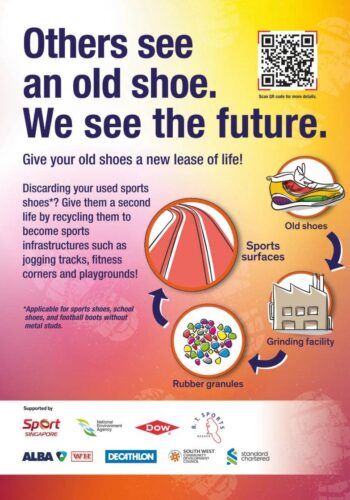
I believe we all have our Individual roles to play for a better environment. Like the saying goes, “Think Globally, Act Locally“
